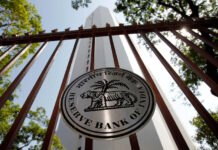The Lemon market is a 1970 standard term introduced by the economist George Akerlof who witnesses the destruction of the quality of goods transacted in a market as a result of inadequate market information between buyers and sellers or market asymmetry. He illustrated how the quality of goods traded in the market is governed by prices. In American everyday communication, a lemon depicts a car which is found defective the moment it is purchased (Akerlof, 1970). Under the situation of market asymmetry, low prices have the capacity to drain or drive away sellers of high-quality goods, leaving merely lemons behind. It is not wrong to relate Akerlof’s lemon market with the saffron market for it is also undergoing market asymmetry or inadequate market information between buyers and sellers. The saffron owners who sell adulterated saffron are willing to sell at a low price while those who sell unadulterated or pure saffron are willing to sell at a high price. The buyers are willing to pay a higher price for adulterated saffron and low price for unadulterated saffron. Such a situation happens in the presence of market asymmetry or information lopsidedness thereby leading to adverse selection. In addition, the saffron sellers very well know what kind of saffron they have, but buyers are not in a position to tell the same. Furthermore, what they know is that half of the entire used saffron are lemons (here adulterated saffron). As a result, given the expected probability that known saffron is a lemon, they will pay only a fixed price that averages the value of adulterated saffron and unadulterated saffron. But honest saffron owners who sell pure saffron are not ready and therefore willing to sell at the fixed price, so only fake or adulterated saffron owners will sell in the market. They know whether they hold adulterated or unadulterated saffron, given the fixed price at which buyers will buy, they will sell only when they hold adulterated saffron and they will leave the market the moment they hold pure saffron. In the long run, as more sellers of pure saffron leave the market, the average willingness-to-pay of buyers decline, causing even more drainage of sellers of pure saffron from the market by way of a constructive or optimistic feedback circle or response circle (Akerlof, 1970).
The rational inference or conclusion is that only the adulterated saffron will be sold, and the steady-state or equilibrium price will be between the price that owners of adulterated saffron are willing to sell and the price that the buyers are willing to pay for adulterated saffron or lemon in Akerlof’s terminology. The simple existence of substandard or adulterated goods destroys the market for quality or pure goods when there is market asymmetry. Honest saffron owners who sell pure saffron need some way of signaling their saffron’s quality. Basically the quality uncertainty, market asymmetry, and adverse selection like situations make some meaningful conclusions about the cost of fraudulence or adulteration in markets in broad-spectrum. The cost of adulteration and market cheating is fundamentally a matter of the amount by which the buyer is cheated and the cost must contain the loss suffered from driving good quality products out from the market or legitimate business out of the market.
It is high time to avoid the conditions that generate market asymmetry. As the saffron market is highly unorganized, it is very important to make the trustworthy exposing technology available to sellers or dealers of saffron so that sellers with pure or unadulterated saffron have no way to reveal this realistically or reliably to buyers. Moreover, it is said that the customer is the king of the market and therefore always has an upper hand. It is very important for buyers to be overall optimistic about the seller’s quality. Furthermore, there should not be an insufficiency of operational public quality guarantees.
Binish Qadri is ICSSR Doctoral Fellow pursuing Ph.D. in Economics at Department of Economics, Central University of Kashmir.






























